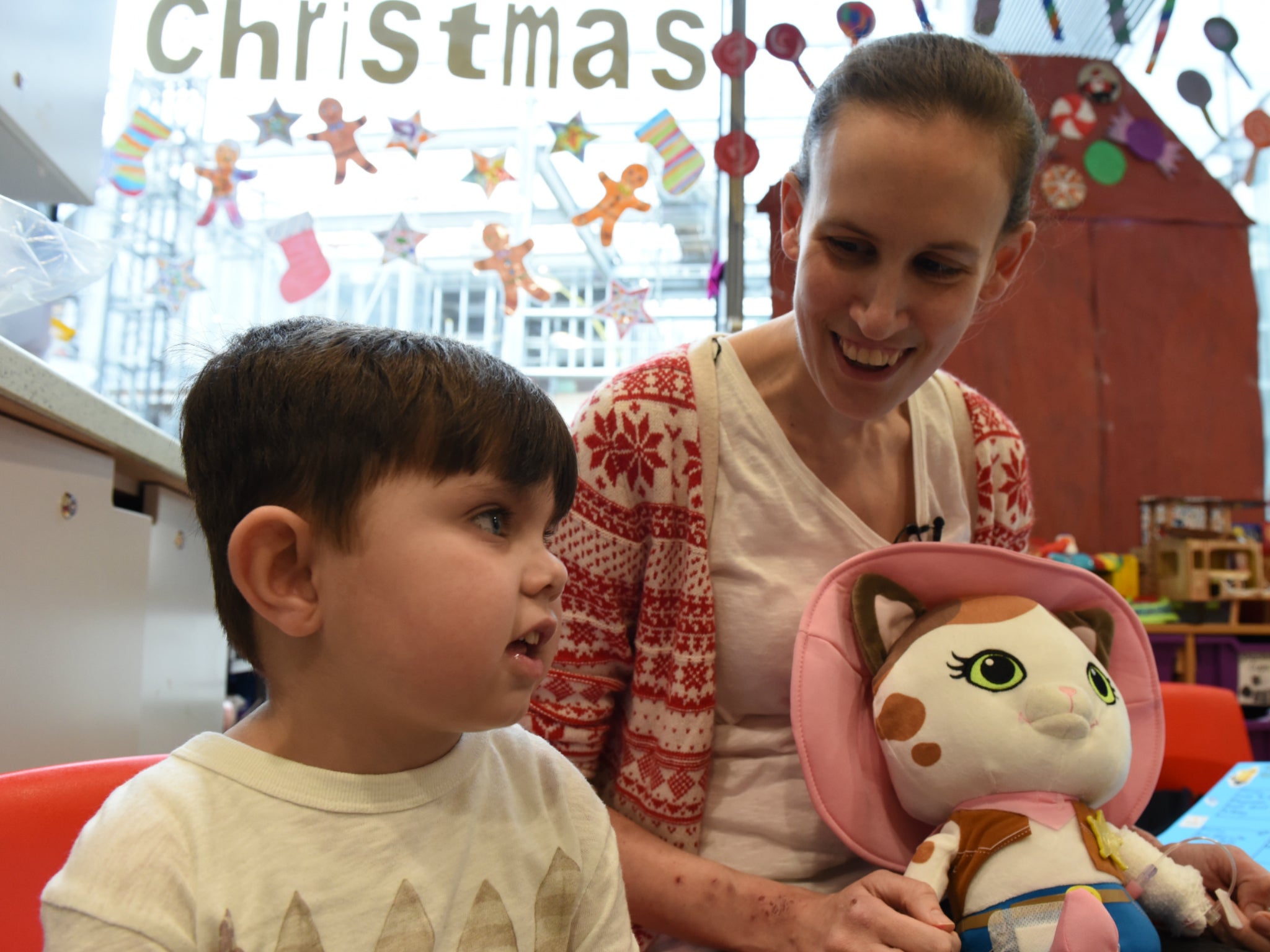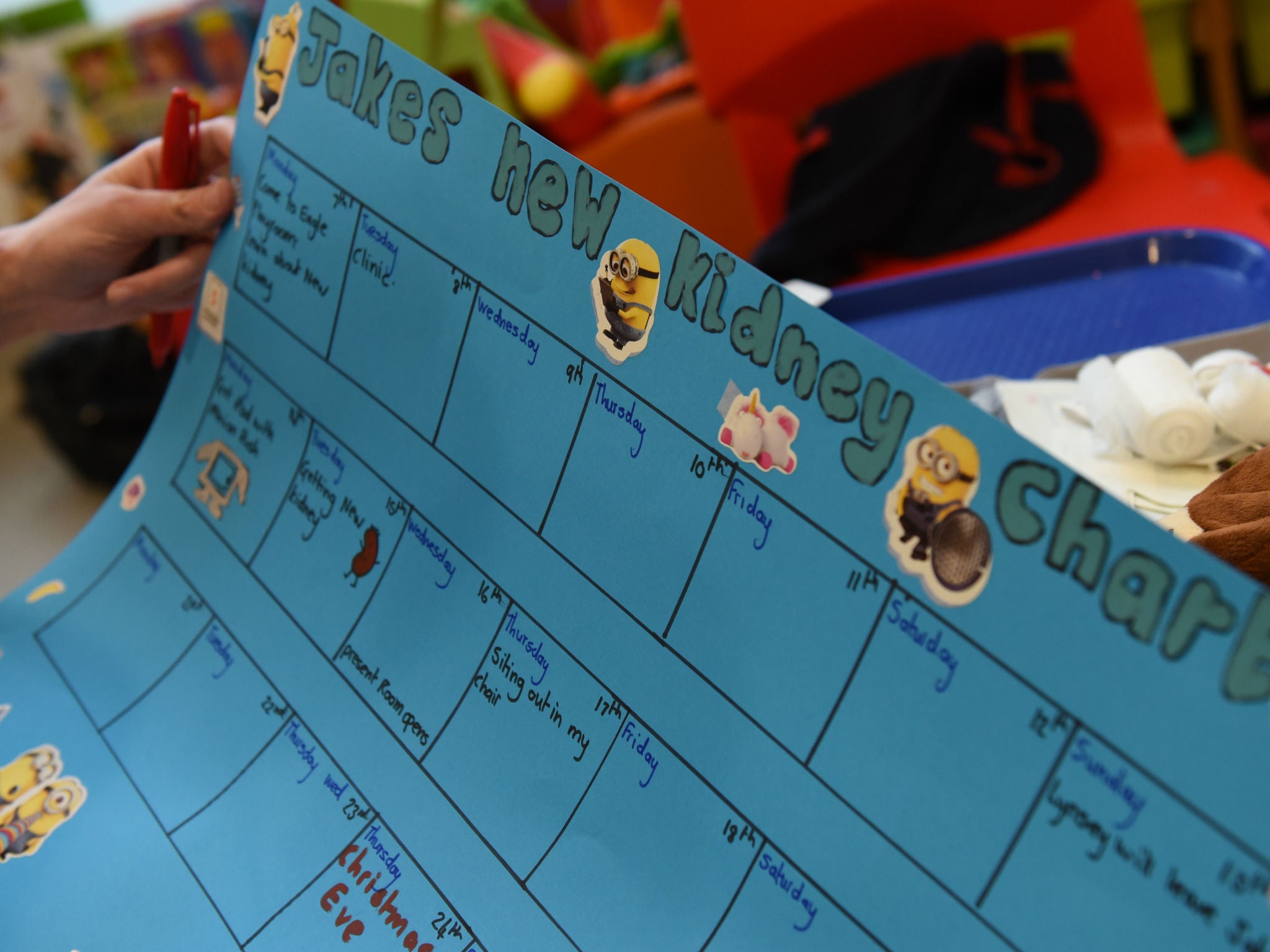How do you prepare a 4-year-old child for major surgery?
It's child's play for Lynsey Steele, one of Great Ormond Street Hospital's inspiring play workers
For Jake Morgan, four, visits to hospital are “sleepovers” and swabs for infection control to help treat his rare kidney disease are “tickling sticks”.
Little older than a toddler, Jake should be learning to tie his shoelaces. Instead he is preparing for kidney transplant surgery and will probably spend Christmas recovering on Eagle Ward at Great Ormond Street Hospital (GOSH).
Jake is a nervous patient and to prepare him for his surgery next week, play specialist Lynsey Steele is using play to help him understand what will happen to him. Earlier this week that meant using a cuddly Elmo toy to show how an intravenous needle will be inserted into his arm.
It’s a careful balancing act. On the one hand he’s only four, with limited powers of comprehension. On the other, if anything comes as a shock to him when he is wheeled into theatre, there’s a real risk his discomfort may jeopardise the operation.
Lynsey, who has worked at GOSH for seven years, treads this tightrope by using a range of play techniques. Under her supervision, Jake is encouraged to model aspects of the preparation and aftermath of the surgery he will receive next Tuesday. In addition to handling a needle, he uses a yellow pen to colour in a “wee wee bag” he will be temporarily connected to after his operation. At another point, he prods a “tickling stick” in the nostrils of a Sheriff Callie teddy bear.

Without these games and techniques, sick children would spend some of the toughest days of their lives “anxious, scared and confused”, according to Lynsey. “I think the kids would become very bored, very quickly,” she said. “If they didn’t have access to play, to toys, to normalise their experience, it would have a big impact of their compliance with their treatments.
“There would probably be a lot of kids that would be refusing to comply with blood tests and cannulas, and refusing their operations because they don’t know what’s going on.”
For Jake’s mother Samantha, 39, the difference Lynsey has made is huge. “When Jake came in he was terrified,” she said. “We couldn’t get him into the ward. Lynsey’s shown him that it’s a comfortable place to be. She’s turned the experience into a game. We used to be at the front door and he’d be screaming.”

Play specialists like Lynsey – there are 34 of them across the hospital’s 35 wards – are supported by the hospital’s charitable arm and their work is a key plank of The Independent’s Give to GOSH Christmas appeal.
Play isn’t just important for keeping children happy and relaxed though. Dr Kanchan Rao, a specialist in bone marrow transplant, said she was “certain” it had a positive effect on the clinical outcomes of her patients. She said: “Play therapy plays a crucial role in what we do. We see time and time again that a happy patient will recover more quickly after a setback.”
DONATE
NOW
Join our commenting forum
Join thought-provoking conversations, follow other Independent readers and see their replies
Comments
Bookmark popover
Removed from bookmarks